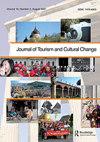日本以欧洲为中心的文化主题公园:国内游客对场所品牌的看法
IF 2.5
4区 管理学
Q2 HOSPITALITY, LEISURE, SPORT & TOURISM
引用次数: 0
摘要
摘要在泡沫经济时代,日本乡村建设了文化主题公园,以实现经济复兴。这些文化主题公园或外国村庄拥抱外国文化和景观,而不是过山车。它们为日本游客提供针对日本市场进行调整和修改的外国旅行体验。本文以基于地点的品牌、想象和真实性为背景,比较了长崎的惠氏十博施和大分的玉坊花卉村这两个以欧洲为中心的主题公园。惠斯滕博施于1992年开业,是一个基于长崎与荷兰历史联系的大型文化主题公园。它重建了荷兰的城市和景观,提供酒店、餐厅、商店和景点。在Yufuin的温泉区,Floral Village于2012年开业,仿照英国科茨沃尔德。故事书建筑的房子里有纪念品商店和茶室,里面有英国文学和吉卜力工作室动漫中的人物。基于实地考察、图片记录和对TripAdvisor上游客评论的定性情感分析,本文调查了日本游客的看法。他们对Huis Ten Bosch持积极态度,开发商成功地创造了一个荷兰环境并为其打上了品牌,而Yufuin的混合信息表明了产品市场匹配对这些“异国情调”景点的重要性。本文章由计算机程序翻译,如有差异,请以英文原文为准。
Eurocentric cultural theme parks in Japan: domestic tourists’ perspectives on place branding
ABSTRACT During the Bubble Economy era, cultural theme parks were constructed in rural Japan for economic rejuvenation. These cultural theme parks or gaikoku mura (foreign villages) embrace foreign cultures and landscapes rather than rollercoasters. They offer Japanese tourists the foreign travel experience adapted and modified for the Japanese market. Set within place-based branding, imaginaries, and authenticity, this paper compares the Eurocentric theme parks of Huis Ten Bosch in Nagasaki and Yufuin Floral Village in Oita. Opening in 1992, Huis Ten Bosch is a large-scale cultural theme park based on Nagasaki’s historical connection to the Netherlands. Recreating Dutch cities and landscapes, it offers hotels, restaurants, shops, and attractions. Within the hot springs area of Yufuin, the Floral Village opened in 2012, modelled after The Cotswolds, UK. Houses with storybook architecture contain souvenir shops and tea rooms featuring characters from British literature and Studio Ghibli anime. Based on site visits, photographic documentation, and qualitative sentiment analysis of comments written by visitors on TripAdvisor, the paper investigates the perceptions of Japanese tourists. They are positive about Huis Ten Bosch with developers having successfully created and branded a Dutch environment, while mixed messages at Yufuin demonstrate the importance of product-market match for these ‘exotic’ attractions.
求助全文
通过发布文献求助,成功后即可免费获取论文全文。
去求助
来源期刊

Journal of Tourism and Cultural Change
HOSPITALITY, LEISURE, SPORT & TOURISM-
CiteScore
5.10
自引率
9.10%
发文量
31
期刊介绍:
Journal of Tourism and Cultural Change ( JTCC ) is a peer-reviewed, transdisciplinary and transnational journal. It focuses on critically examining the relationships, tensions, representations, conflicts and possibilities that exist between tourism/travel and culture/cultures in an increasingly complex global context. JTCC provides a forum for debate against the backdrop of local, regional, national and transnational understandings of identity and difference. Economic restructuring, recognitions of the cultural dimension of biodiversity and sustainable development, contests regarding the positive and negative impact of patterns of tourist behaviour on cultural diversity, and transcultural strivings - all provide an important focus for JTCC . Global capitalism, in its myriad forms engages with multiple ''ways of being'', generating new relationships, re-evaluating existing, and challenging ways of knowing and being. Tourists and the tourism industry continue to find inventive ways to commodify, transform, present/re-present and consume material culture. JTCC seeks to widen and deepen understandings of such changing relationships and stimulate critical debate by: -Adopting a multidisciplinary approach -Encouraging deep and critical approaches to policy and practice -Embracing an inclusive definition of culture -Focusing on the concept, processes and meanings of change -Encouraging trans-national/transcultural perspectives
 求助内容:
求助内容: 应助结果提醒方式:
应助结果提醒方式:


